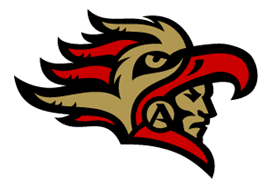
![]()

|
|
|
|
History 109 is the first semester of a two-semester introduction to United States history. This course will trace the rise of America from the settlement of the British colonies to the Civil War and Reconstruction. It will examine, in particular, the cultural contact of Europeans, Native Americans, and Africans, the rise of slavery, the maturation of colonial settlements, the American Revolution, the advent of early industrialism and the market economy, gender and class in the antebellum period, and the Civil War and subsequent Reconstruction of America.
| Eric Foner, Give Me Liberty Vol. 1 (4th Seagull edition) | |
Betty Wood, The Origins of American Slavery
|
|
| Frederick Douglass, Narrative of the Life of Frederick Douglass | |
| Additional readings / documents will be available on Blackboard and online. |
Grades will be based on one midterm, a final exam, and a 5-6 page paper. The exams are essay in form.
Midterm 1: 35% Paper: 30% Final: 35%
Please be aware that the major themes and ideas that comprise my exams are generally drawn from my lectures so attendance is critical if you wish to do well in this course. Readings, both from the text and the other assigned books, are not extra or optional assignments. The readings complement, but do not replace, my lectures and are there to help you better understand major themes and issues raised in class. One key to success in this course is to keep up with the reading assignments.
Class Etiquette: Please arrive on time and do not leave before the end of class unless you inform me prior to class. Because it is quite distracting, please do not get up to go to get a drink or go to the restroom unless it is an emergency. Also, please be sure cell phones and off or on silent. This also means no text messaging during class. Finally, laptops can be used only to take notes.
Student Learning Outcomes:
1. Students will understand and analyze the major themes and issues in the early United States history and the historical forces that have shaped them.
2. Students will investigate the racial and cultural diversity of the United States and the struggles over power and freedom and how these have shaped the nation.
3. Students will explore and critically analyze both primary and secondary source material.
4. Students will probe the nature of historical interpretation.
5. Students will undertake historical research using primary source material and improve writing skills.
SDSU Academic Honesty Policy:
Institutions of higher education are founded to impart knowledge, seek truth, and encourage one’s development for the good of society. University students shall thus be intellectually and morally obliged to pursue their course of studies with honesty and integrity. Therefore, in preparing and submitting materials for academic courses and in taking examinations, a student shall not yield to cheating or plagiarism, which not only violate academic standards but also make the offender liable to penalties explicit in Title 5.
Cheating
shall be defined as the act of obtaining or attempting to obtain credit for
academic work by the use of dishonest, deceptive, or fraudulent means. Examples
of cheating include, but are not limited to (a) copying, in part or in whole,
from another’s test or other examination; (b) discussing answers or ideas
relating to the answers on a test or other examination without the permission of
the instructor; (c) obtaining copies of a test, an examination, or other course
material without the permission of the instructor; (d) using notes, cheat
sheets, or other devices considered inappropriate under the prescribed testing
condition; (e) collaborating with another or others in work to be presented
without the permission of the instructor; (f) falsifying records, laboratory
work, or other course data; (g) submitting work previously presented in another
course, if contrary to the rules of the course; (h) altering or interfering with
the grading procedures; (i) plagiarizing, as defined; and (j) knowingly and
intentionally assisting another student in any of the above.
Plagiarism shall be defined as the act of incorporating ideas, words, or
specific substance of another, whether purchased, borrowed, or otherwise
obtained, and submitting same to the University as one’s own work to fulfill
academic requirements without giving credit to the appropriate source.
Plagiarism shall include but not be limited to (a) submitting work, either in
part or in whole, completed by another; (b) omitting footnotes for ideas,
statements, facts, or conclusions that belong to another; (c) omitting quotation
marks when quoting directly from another, whether it be a paragraph, sentence,
or part thereof; (d) close and lengthy paraphrasing of the writings of another;
(e) submitting another person’s artistic works, such as musical compositions,
photographs, paintings, drawings, or sculptures; and (f) submitting as one’s own
work papers purchased from research companies. Those guilty of committing
plagiarism or cheating will receive an F for both the assignment and the entire
course.
“Students agree that by taking this course all required papers may be subject to submission for textual similarity review to Blackboard's Turnitin.com for the detection of plagiarism. All submitted papers will be included as source documents in the Turnitin.com reference database solely for the purpose of detecting plagiarism of such papers. You may submit your papers in such a way that no identifying information about you is included. Another option is that you may request, in writing, that your papers not be submitted to Turnitin.com. However, if you choose this option you will be required to provide documentation to substantiate that the papers are your original work and do not include any plagiarized material.”